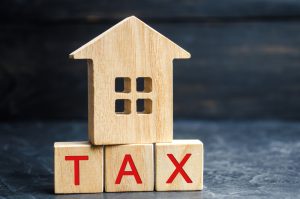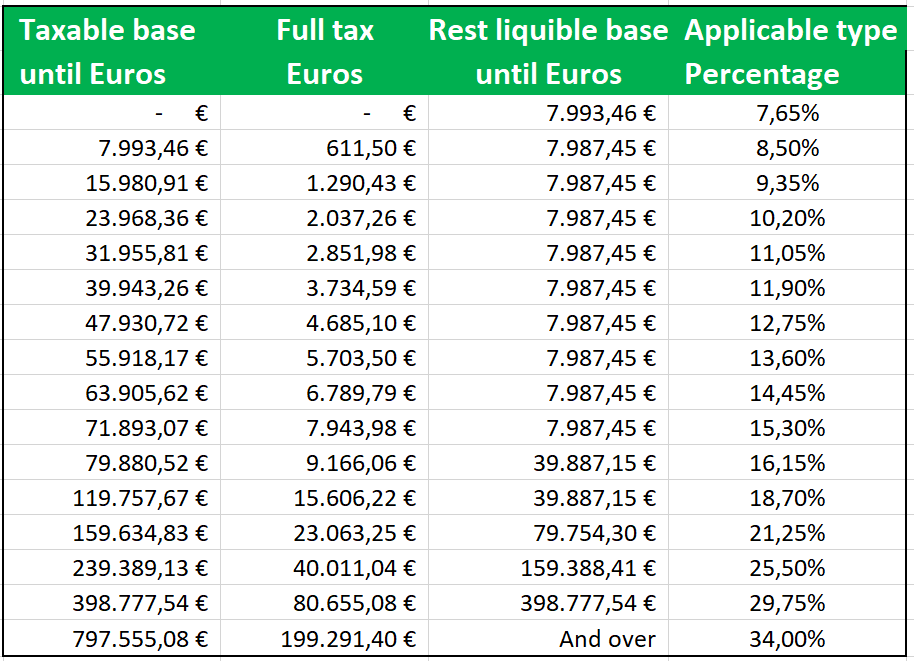HOLIDAY LETS IN ANDALUSIA 2023, PART I: LIMITATIONS AND ADMINISTRATIVE REGULATION

The Regional Government of Andalusia has announced a new decree to regulate holiday lets, which it hopes to approve before the summer. This decree would enable local councils to limit, through the General Urban Development Plan (PGOU), the establishment of new holiday homes.
Over the last few years, the increase in the supply of properties used as holiday lets in cities that are very appealing to tourists is causing increasingly difficult problems due to tourist overcrowding in certain areas, as well as a shortage in the supply of long-term rental housing, coupled with very high prices.
The debate has moved to the political arena and it seems that there’s a trend to limit or even ban these activities in certain cities or specific areas.
Only in Andalusia, in cities such as Seville, Granada, Cadiz and Malaga, there is a clear debate to limit new homes from continuing to be offered as holiday lets. Other areas in the Costa del Sol, such as Marbella, Fuengirola, Nerja and Benalmádena, also have a large stock of holiday lets and there are also talks about limiting this activity.
In this first part, we will talk about the current situation in Andalusia, with a special mention about the Malaga area, in terms of holiday lets and the potential limitations that could be introduced by different cities or municipalities in the medium and long term.
Current situation of holiday lets and traditional rental housing in the city of Malaga
Malaga is the Spanish city that has grown the most in terms of tourism over the last few years. This has resulted in many foreign buyers investing and continuing to invest in buying and selling homes in Malaga to be used in the holiday lets market.
To this growth of holiday lets in the city of Malaga, we must add the shortage in the supply of properties in the long-term rental housing market. According to property site Idealista, Malaga is the Spanish province capital where the supply of traditional rental housing has decreased the most over the last year, with a fall of 27%. In the province, the reduction has been 15% over the previous year.
This shortage in the supply of long-term rental housing in Malaga has mainly resulted in an increase in rent prices, which, only last year, has amounted to 25.8%. For some time now, in Malaga, the average rent being paid has been the highest in its historical series and this is not only happening in the city of Malaga itself but also in other municipalities in the Costa del Sol.
How could the future of holiday lets in Malaga look?
It is obvious that the city of Malaga is beginning to suffer a certain level of tourist overcrowding in the central district. According to a news article published on 7 February, only in central Malaga, 4.778 homes are registered in the Andalusian Tourism Register (RTA).
The nuisance caused by holiday lets for residents, tourist overcrowding and the large percentage of homes devoted to this activity has made even the mayor of Malaga acknowledge that we must limit and regulate holiday lets better. This argument is also bolstered by the need for more homes in the traditional rental market, as demand is much greater than the available supply at this time.
It is likely that, once the Regional Government passes the new regulation, the City Council of Malaga will begin to study what actions it can take to limit holiday lets in the city or at least in some areas.
We don’t know which measures the City Council of Malaga will take but it’s very likely that, in the medium or long term, the market for holiday lets in Malaga becomes limited in one way or another. This applies not only to the city but there will also be other coastal towns that will be taking measures on the matter.
Are holiday-lets profitable in comparison to traditional rental housing?
In many cases they are, but not always. Last year, we published an article on the ROI of the purchase of holiday homes in Spain so we won’t delve too deep into it now. Profitability will depend on the price paid for the home, as well as the personal situation of the owner who wants to rent the home in the holiday lets market.
From our own experience, most of our foreign clients who buy a home in Andalusia, especially in the province of Malaga, are not tax resident in Spain and need an agency to manage their holiday let.
At least 40% of their income turns into costs for the owner in this type of rental. Out of every 100 euros in rent, between 18% and 22% must be paid to the agency to manage the holiday let, in addition to a tax of 19% if the owner is resident in the EU or 24% if the owner is resident outside the EU.
If the owner is tax resident in Spain, the taxes payable on this rental property can be even higher, as this income is deemed equivalent to income from work and is taxed according to the progressive income tax scale. If the owner resident in Spain has a high income, e.g. 70,000 euros a year or more, he or she would have to pay 30% or 35% tax on this income, perhaps even more. In this case, we are talking about costs of 50% or 55% of every 100 euros received in rent.
One of the greatest benefits of traditional long-term rentals is the reduction of 50% in the income received by the owner, which would be tax-exempt, and this reduction can reach up to 90% in some cases. This reduction is only applicable to owners who are tax resident in Spain. Also the dwelling needs to be officially the first residency of the renters.
Among the great benefits of holiday lets is the possibility of the owner to use the home for his or her own enjoyment. Another great benefit of holiday lets is the significant legal problem that owners face when they let their homes long-term and the tenants stop paying rent, as the legal proceedings for eviction will always take several months and up to one year. Not to mention the uncertainty of the condition in which tenants will leave the home.
Are the limitations in holiday lets justified?
In my opinion, it is necessary to limit these activities when, in certain cities or specific areas in them, there is tourist overcrowding affecting the local residents disproportionately. Tourist overcrowding also takes its toll on the quality of public services.
Likewise, the increase of homes used as holiday lets in certain areas, such as in the central district of the city of Malaga, results in a decrease in the supply of long-term rental homes and price increases for people to rent permanent housing.
Why is access to rental housing a problem in Malaga for the resident population?
The average salary in Malaga is about 1,550 euros per month and finding a home in the capital for less than 900 or 1000 euros a month is almost impossible in many areas. If the city needs employees in different industries: teachers, nurses, clerks, hospitality, etc., can they live in Malaga on those wages and pay those rents?
In short, effective regulation is necessary, provided that holiday lets do not become criminalized and political-electoral campaigning should be avoided on this matter.
If there are objective parameters that mean such regulation is advisable, it should be done, because the problem in those areas or cities will continue to get worse. Many of us who live in the city of Malaga see such regulation or limitation as necessary to try to achieve a balance between tourism and residential activities.
Are holiday lets being limited in other parts of Spain?
In cities with a great impact from tourism, such as Madrid, Barcelona and Palma de Mallorca, just to name a few examples, measures have been introduced to limit or restrict holiday lets.
On 11 February 2022, the Balearic Islands passed a decree establishing a 4-year moratorium, during which no new holiday rental properties may be registered.
In 2018, the City Council of Palma de Mallorca prohibited holiday lets in all multi-family homes, i.e. in blocks of flats and apartments, to allow it only in single-family homes such as villas.
This ban from the City Council of Palma was challenged in court but the Supreme Court, in a judgment of 31 January 2023, agreed with the City Council in relation to the prohibition of having holiday lets in the city’s blocks of flats. In one of the most prominent arguments, the Court referred to the jurisprudence of the Court of Justice of the European Union, which argues for “prior authorization in municipalities where tension about rentals is particularly pronounced”.
Likewise, the Court considered the defense of the general right to housing correct and justified, as alleged by the City Council of Palma de Mallorca based on reports evidencing the impact of this activity in neighborhoods, the shortage in the supply of rental housing for the resident population and the significant effects on the environment, the land, energy resources, water resources, infrastructures and roads.
Potential rental limitation or prohibition by your owners´ association?
Are you investing in real estate in Andalucia and want to know more about potential limitation or prohibition for renting out your property by your owners´ association/community of owners? Then also read our article 2 about this subject:
Holiday lets in Andalusia 2023, Part 2: Limitations and prohibitions from owners associations
Legal advice about buying to let from C&D Solicitors Torrox/Malaga
Our firm, C&D Solicitors, specializes in providing legal advice in buying and selling properties for foreign residents and non-residents, when acquiring a property in Andalusia, whether a secondhand home or an off-plan home, with a multilingual firm and staff speaking English, Dutch, Swedish, German and French.
Many of our clients are thinking about holiday lets for their homes when making an investment in Spain, this being an essential requirement for some of these transactions to take place.
Even though the current property boom and property investment, especially in the province of Malaga and coastal areas, have had a positive impact on our activity, as residents in this area of Malaga, we are no strangers to some of the problems that have begun to arise in certain areas with excessive holiday lets and a lack of residential supply, with tourist overcrowding in certain areas.
If appropriate and measures considering all stakeholders aren’t taken, in the end this will all have a negative effect on tourism, against our interest and providing quality tourism.
We need tourism because it’s an essential source of activity for many companies in Andalusia, but there must always be a balance between holidaymakers and the resident population. Otherwise, this would not be positive in the long term.
Author: Gustavo Calero Monereo, lawyer at C&D Solicitors Torrox/Malaga (Andalusia)




























